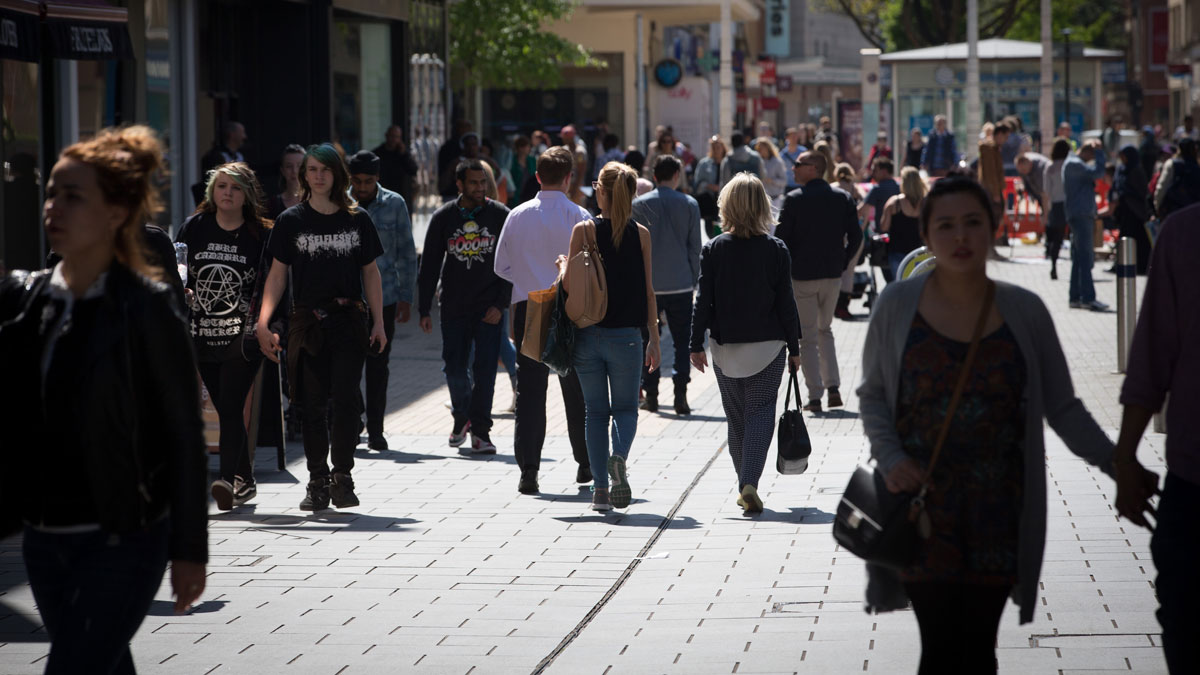How healthy is the high street really?
Sales are rising and shop closures are down, but challenges remain

A free daily email with the biggest news stories of the day – and the best features from TheWeek.com
You are now subscribed
Your newsletter sign-up was successful
We regularly hear talk that the UK high streets are dying due to the joint pressures of business rates, price competition and online shopping luring customers away. But, how bad is the situation really?
Are shops closing?
Yes, but not as many as you might think. “The pace of retail store closures across the UK has plummeted to the lowest level for five years,” reports David Hellier in The Guardian.
The Week
Escape your echo chamber. Get the facts behind the news, plus analysis from multiple perspectives.

Sign up for The Week's Free Newsletters
From our morning news briefing to a weekly Good News Newsletter, get the best of The Week delivered directly to your inbox.
From our morning news briefing to a weekly Good News Newsletter, get the best of The Week delivered directly to your inbox.
Figures from PwC show that in the first six months of 2015, stores closed at a rate of 14 a day – the lowest figures since 2010. Closure rates peaked in the first six months of 2012 when shops were shutting down at a rate of 20 a day.
“Coffee shops, charity shops, takeaways, jewellers, health food shops and computer games outlets all did well in terms of new shops opening,” says Hellier.
Does falling shops mean falling sales?
No, high street spending has been growing. Retail sales have been rising on a year-on-year basis for over two years, according to figures from the Office for National Statistics. September retail sales were 1.3 per cent higher than in August.
A free daily email with the biggest news stories of the day – and the best features from TheWeek.com
"The ONS said falling prices and promotions linked to the Rugby World Cup hosted in England motivated UK consumers to buy more stuff,” says Bauke Schram in the International Business Times. “September was the 29th consecutive month of year-on-year increases."
So, online shopping isn’t destroying the high street?
The amount we are spending at online retailers is slowing, but it continues to rise. "Online sales value jumped by more than 15 per cent on a year-to-year basis in September, and was up 4.5 per cent from August,” reports Schram.
But the British high street is adapting to this. New shop openings "were more likely to be leisure or service-based," Mark Hudson, retail partner at PwC told The Guardian. While traditional high street stalwarts such as clothing shops, pubs and banks are retreating, they are being replaced by health food stores, coffee shops and takeaways.
"Online sales growth is slowing and consumer spending is increasing so the dramatic impact on store numbers of the double whammy of channel shift and fewer store visits is abating for now and we are returning to a more natural level of churn," says Hudson.
"What’s clear though is that a tidal wave of change is still washing through the high street and that consumer shopping behaviour means we’re not going back to the traditional high street of the past."
What else is affecting shops?
Smaller retailers have long bemoaned the business rates they are forced to pay, which they say hit them disproportionately and make it hard for them to compete.
The Treasury is currently looking into a “structural reform of business rates – looking into what sort of businesses should pay the rates and at what bands,” says James Quinn in The Telegraph. Details of that investigation will be revealed in the Autumn Statement next month.
Will rates fall?
Quite possibly - and the review isn't the only reason why. George Osborne announced this month the end of a uniform level for business rates across the country as he revealed that from 2020, councils in England will be able to keep the proceeds from business rates raised in their area.
What won’t be able to happen as a result of the changes is councils whacking up rates to boost their own revenues.
"Although local authorities will be able to cut business rates, they won’t be able to put them up, unless that is they are cities like London or Manchester with directly elected mayors... Even then they’ll only be able to put the rates up by 2p in the pound, to finance infrastructure, and only if businesses vote in favour in local polls,” says the BBC's Robert Peston.
Instead councils could be set to compete to get new shops and businesses onto the high street, which may mean lower rates.
-
 The environmental cost of GLP-1s
The environmental cost of GLP-1sThe explainer Producing the drugs is a dirty process
-
 Greenland’s capital becomes ground zero for the country’s diplomatic straits
Greenland’s capital becomes ground zero for the country’s diplomatic straitsIN THE SPOTLIGHT A flurry of new consular activity in Nuuk shows how important Greenland has become to Europeans’ anxiety about American imperialism
-
 ‘This is something that happens all too often’
‘This is something that happens all too often’Instant Opinion Opinion, comment and editorials of the day